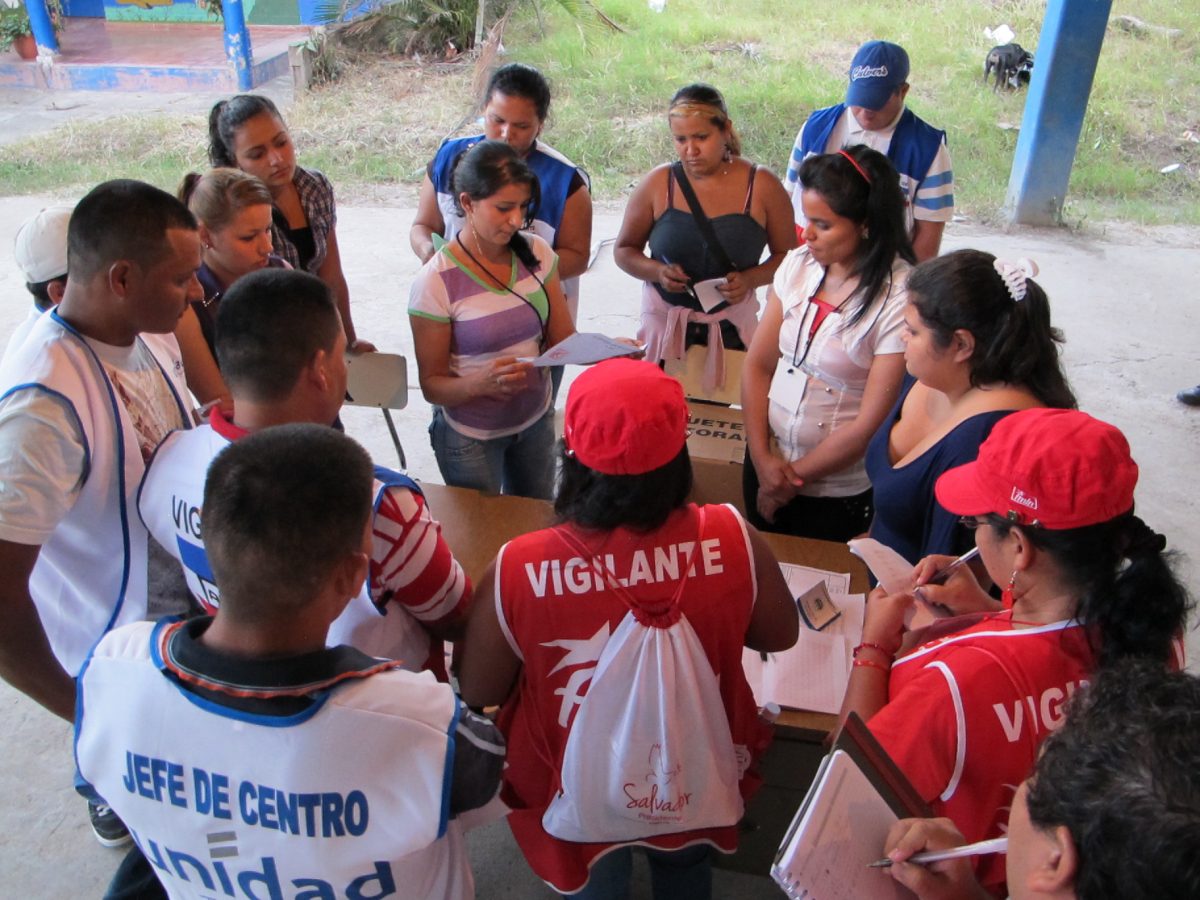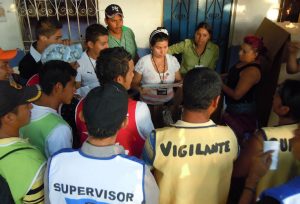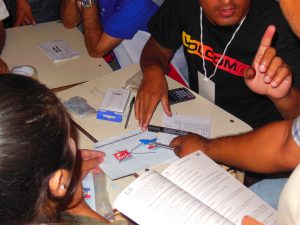Get Involved, Politics
Reflection on the El Salvador Presidential Elections
By Sister Cities Volunteer and Elections Observer Cori Ring
The weeks leading up to the first round of elections here were intense, full of last minute campaigning and fresh waves of fear spurred by the spiking crime and murder rate in the new year. To hear ARENA tell it, the crime wave was just another example of the FMLN and current president Mauricio Funes’ soft stance on crime, and a problem that won’t let up should there be another FMLN victory. Furthermore, they allege, the FMLN has actually been working with the gangs, having the gangs pressure people to vote for them.
Deeper analysis shows, however, is that this fear mongering is another tactic being waged by the right wing as part of their overall campaign strategy to delegitimize the electoral process, namely by attacking the Supreme Electoral Tribunal (TSE) with accusations of partisanship, as well as using fear to deter people from going to the ballot box or going to the ballot box convinced that the crime is a result of the FMLN.
Claims of partisanship by the TSE do have some merit, mostly because the institution is made up of representatives from each party with the most votes by law. The only difference now is that ARENA isn’t the party with the most representation. Similarly, there have been complaints that Mauricio Funes is campaigning on behalf of the FMLN. This is not so clear cut since Funes has not been totally aligned with the FMLN, although in the past few months he has come out in support of the party’s governing plans. Furthermore, his political future is unclear and the commercials that ARENA is accusing him of using as part of the FMLN campaign may in fact be an attempt to capitalize on his own high political currency before he leaves office.
Either way, the fear mongering and rumor campaign didn’t work for ARENA; the election results showed Sanchez Ceren a full 10 percentage points ahead of ARENA, one percentage point short of what the FMLN needed to win the absolute majority to avoid the runoff elections that will now take place Sunday, March 9th.
As attested to by a number of international and national observer delegations, the first round of elections went smoothly in a transparent manner, with a few exceptions at individual tables and centers. Of some concern was the center where votes from the exterior were being processed. Observer reports say that up to 40% of the votes there were nullified questionably, although some of them were justifiable due to the complicated process of sending the ballots, coupled with poor voter education. In the future, some observer groups would like to see less physical partisan representation during the voting process, as it can be intimidating to voters and in some cases actually deter voters, as well as contribute to the scenarios where one particular party can browbeat another simply with sheer force of presence.
In one case, a woman with Down’s syndrome came to vote with her mother to assist her. Everything went according to the electoral code until she went to the voting booth with her mother, when suddenly an ARENA vigilante noticed that they were both wearing FMLN bracelets, and began making a scene, yelling that the mother was going to vote for the woman, and that this was fraud. A screaming match ensued, no one consulted the electoral code (which says that anyone who needs assistance is allowed to choose someone to help them vote), and finally the woman was forced to vote without assistance in public. It was a shameful display of public humiliation in a small town, where sharply divided town politics ultimately denied a woman her right to vote in secret.
Cases like these, although rare, demonstrate some of the hurdles that the democratic process in El Salvador still has left to clear, although this particular case may also speak to the long road ahead in the struggle for the rights of people with disabilities. However, observers have agreed that in general, the elections were free and fair, and that the mechanisms put in place to deal with conflict worked as they should have. Especially in comparison to the last Presidential elections in 2009, the electoral process in El Salvador has come a long way towards being more transparent and democratic.
According to political analyst and economist Cesar Villalona, the only question is if Saca will ally himself with the FMLN in exchange for policy changes and government positions, or if he will stay out of the picture in the second round in order to better position himself as an opposition leader to the new government. For now, the campaigns will continue pretty much as they have since before the first round, although Quijano has lessened the fear mongering campaign somewhat, in exchange for a barrage of billboards co-opting the social programs implemented by the FMLN government. ARENA will continue accusing the TSE and Funes of partisanship in a strategy to delegitimize the election results, of which another facet is the corporate owned media reporting a 52% voter turnout. With a low voter turnout, the voter mandate is not as strong and the electoral process is questionable. However, of the actual eligible voters, there was a 63% turnout, with voters turning out early in the day to exercise their right to vote.
Hopefully, the peaceful and orderly process that international observers overwhelmingly reported will be the case once again come March 9th. The FMLN is positioned for a win with a wide margin, as of recently the polls put it as high as a 12% lead. Political analysts think that ARENA cannot and will not be able to bridge that gap in time for the second round, even if they manage to convince a significant portion of the UNIDAD/ Tony Saca voters to vote for Norman Quijano. For up to date English-language news and analysis about the runoff elections, click here.



